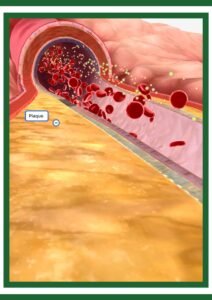B.U.M.S COURSE – COURSE, ELIGIBILITY, DURATION, COURSE CURRICULUM, FEE STRUCTURE, CAREER OPPORTUNITY (ABROAD) AND SALARY
B.U.M.S COURSE (Bachelor of Unani Medicine and Surgery)
B.U.M.S. stands for Bachelor of Unani Medicine and Surgery. It is an undergraduate degree program in the field of traditional Unani medicine and surgery. Unani medicine is a traditional system of medicine that originated in ancient Greece and later developed and practiced in Persia and India.
In India, B.U.M.S. is a popular course for students who are interested in pursuing a career in Unani medicine. The course duration is typically five and a half years, including one year of compulsory internship. The curriculum of B.U.M.S. is regulated by the Central Council of Indian Medicine (CCIM), which is the statutory body responsible for the development and regulation of education in the Indian systems of medicine, including Unani.
ELIGIBILITY
To be eligible for the B.U.M.S. (Bachelor of Unani Medicine and Surgery) course in India, candidates need to fulfill certain criteria. The eligibility requirements may vary slightly between different institutions or universities offering the course. Here are the general eligibility criteria:
- Educational Qualification: Candidates must have completed their 10+2 or equivalent examination from a recognized board or council in the science stream. The science subjects typically include Physics, Chemistry, and Biology (PCB).
- Minimum Marks: Candidates must have obtained a minimum aggregate score in the qualifying examination. The minimum marks required may vary between institutions, but it is usually around 50% to 60% in the PCB subjects.
- Age Limit: The age limit for B.U.M.S. admission may vary between institutions. Generally, the minimum age requirement is 17 years, and the maximum age limit is around 25 years. However, there may be relaxation in the upper age limit for reserved category candidates.
- Entrance Examination: Many institutions and universities conduct entrance examinations for admission to the B.U.M.S. course. Candidates are required to qualify in the entrance exam to secure admission. The entrance exam may include subjects such as Physics, Chemistry, Biology, and sometimes, a section on Unani medicine.
- Domicile Requirement: Some institutions may have a domicile requirement, which means that candidates must be residents of the state or region where the institution is located. This requirement may vary between institutions and states.
B.U.M.S COURSE DURATION
The duration of the B.U.M.S. (Bachelor of Unani Medicine and Surgery) course in India is typically five and a half years. This duration includes both theoretical and practical training. The course is divided into four and a half years of academic study and one year of compulsory internship.
During the four and a half years of academic study, students learn various subjects related to Unani medicine, including the principles and fundamentals of Unani medicine, anatomy, physiology, pharmacology, pathology, surgery, and gynecology, among others. They also receive practical training through clinical rotations and hands-on experience in Unani medicine.
After completing the academic portion of the course, students are required to undergo a one-year internship in a recognized Unani hospital or institution. This internship provides them with practical exposure and allows them to apply their knowledge in real-life healthcare settings.
COURSE CONTENT
The B.U.M.S. (Bachelor of Unani Medicine and Surgery) course in India covers a wide range of subjects related to Unani medicine, which is a traditional system of medicine originating from ancient Greece and later practiced in Persia and India. The course curriculum is designed to provide students with a comprehensive understanding of Unani medicine and its various aspects. Here is an overview of the typical course content:
- Preclinical Subjects:
- Anatomy: Study of the structure and organization of the human body.
- Physiology: Understanding the normal functions and mechanisms of the human body.
- Paraclinical Subjects:
- Pathology: Study of the nature and causes of diseases.
- Microbiology: Understanding microorganisms and their relation to diseases.
- Pharmacology: Study of drugs and their effects on the body.
- Forensic Medicine and Toxicology: Knowledge of medical and legal aspects of crimes and toxic substances.
- Clinical Subjects:
- Ilmul Amraz (General Medicine): Study of general diseases and their diagnosis, management, and treatment in Unani medicine.
- Ilmul Advia (Pharmacology): In-depth understanding of Unani medicines, their formulations, and therapeutic uses.
- Ilmul Jarahat (Surgery): Study of surgical procedures and techniques used in Unani medicine.
- Ilmul Qabalat wa Amraze Niswan (Obstetrics and Gynecology): Knowledge of obstetrics, gynecology, and women’s health issues in Unani medicine.
- Ilaj bit Tadbeer (Regimenal Therapy): Focuses on non-pharmacological treatment methods, including diet, exercise, and lifestyle modifications.
- Tahaffuzi wa Samaji Tibb (Preventive and Social Medicine): Study of public health, preventive medicine, and community healthcare practices.
- Unani Philosophy and Principles:
- Kulliyat-e-Tibb (Basic Principles of Unani Medicine): Understanding the fundamental principles, theories, and philosophy of Unani medicine.
- Munafeul Aza (Physiology in Unani Medicine): Application of Unani concepts and theories to the understanding of human physiology.
FEE STRUCTURE
The fee structure for the B.U.M.S. (Bachelor of Unani Medicine and Surgery) course in India can vary depending on the institution or university offering the course. The fee structure is determined by the respective educational institution and may be subject to change. Here is a general overview of the fee structure:
- Tuition Fees: The tuition fees for the B.U.M.S. course can range from around INR 20,000 to INR 2,00,000 per year, depending on the institution. Government or state-run colleges tend to have lower tuition fees compared to private institutions.
- Examination Fees: Students are usually required to pay examination fees for each semester or year. The examination fees can vary but typically range from a few thousand rupees to INR 10,000 per year.
- Registration Fees: Some institutions may charge a one-time registration fee or an annual registration renewal fee.
- Hostel Fees (if applicable): If the institution provides hostel facilities, students may need to pay additional fees for accommodation, mess charges, and other amenities. Hostel fees can vary significantly depending on the institution and the type of facilities provided.
- Miscellaneous Fees: There may be additional fees for library usage, laboratory charges, sports facilities, and other extracurricular activities.
CAREER OPPORTUNITY
Completing a B.U.M.S. (Bachelor of Unani Medicine and Surgery) course in India opens up various career opportunities in the field of Unani medicine. Here are some career paths that B.U.M.S. graduates can pursue:
- Unani Practitioner: Many B.U.M.S. graduates choose to establish their own private practice as Unani practitioners. They can diagnose illnesses, prescribe Unani medicines, and provide traditional Unani treatments to patients. Graduates can set up their own clinics or join existing Unani hospitals, dispensaries, or healthcare centers.
- Government Jobs: B.U.M.S. graduates are eligible for government job opportunities in various healthcare settings. They can work in government hospitals, dispensaries, and primary healthcare centers as Unani Medical Officers. They may also find opportunities in government research institutions and public health programs.
- Teaching and Research: Graduates with a B.U.M.S. degree can pursue a career in teaching and research. They can join Unani medical colleges and universities as faculty members and contribute to the education and training of future Unani practitioners. They may also engage in research activities related to Unani medicine and contribute to advancements in the field.
- Hospital Administration: B.U.M.S. graduates can explore opportunities in hospital administration and management. They can work in administrative roles in Unani hospitals or healthcare organizations, overseeing operations, quality control, and patient care.
- Pharmaceutical Industry: The pharmaceutical industry offers career opportunities for B.U.M.S. graduates. They can work in the research and development departments of pharmaceutical companies involved in producing Unani medicines. They may also work in quality assurance, drug regulation, or sales and marketing of Unani pharmaceutical products.
- Public Health and NGOs: B.U.M.S. graduates can contribute to public health initiatives and NGOs working in the field of traditional medicine and healthcare. They can work on community health programs, health awareness campaigns, and outreach programs, promoting the benefits of Unani medicine and providing healthcare services to underserved populations.
- Further Specialization: After completing the B.U.M.S. course, graduates can pursue higher education and specialization in specific areas of Unani medicine. They can pursue postgraduate courses (MD or MS) in various specialties such as Ilmul Advia (Pharmacology), Ilmul Qabalat wa Amraze Niswan (Obstetrics and Gynecology), or Ilmul Jarahat (Surgery) to enhance their knowledge and career prospects.
SALARY
The salary of B.U.M.S. (Bachelor of Unani Medicine and Surgery) graduates in India can vary depending on several factors such as experience, specialization, job profile, and the organization they work for. Here is a general overview of the salary range across different career paths:
- Unani Practitioner: The income of B.U.M.S. graduates who establish their own private practice can vary depending on factors such as the location of the clinic, patient base, and reputation. In the initial stages, the income may be modest, but with experience and a good patient base, it can gradually increase. The average salary of a Unani practitioner can range from around INR 30,000 to INR 1,00,000 per month or more.
- Government Jobs: B.U.M.S. graduates working in government hospitals, dispensaries, or primary healthcare centers as Unani Medical Officers can earn a salary as per the pay scales and grade pay determined by the respective state or central government. The initial salary may be around INR 40,000 to INR 50,000 per month, and it can increase with promotions and years of service.
- Teaching and Research: B.U.M.S. graduates who pursue a career in teaching and research can earn salaries based on their academic positions and experience. The salaries can vary depending on the institution and its pay scales. Generally, faculty members in Unani medical colleges or universities can earn salaries ranging from INR 50,000 to INR 1,00,000 per month or more, depending on their seniority and expertise.
- Pharmaceutical Industry: B.U.M.S. graduates working in the pharmaceutical industry can earn competitive salaries. The salary can vary depending on the position and responsibilities. Entry-level positions may offer salaries starting from INR 25,000 to INR 40,000 per month, while higher-level positions or managerial roles can offer salaries of INR 50,000 to INR 1,00,000 per month or more.
The salary of B.U.M.S. (Bachelor of Unani Medicine and Surgery) graduates abroad can vary significantly depending on the country of employment, the healthcare system, and other factors. It’s important to note that Unani medicine is primarily practiced in South Asia and some Middle Eastern countries, and the opportunities for B.U.M.S. graduates abroad may be limited compared to other medical fields. However, there might still be some opportunities available in certain countries. Here is a general overview:
- Middle Eastern Countries: Some Middle Eastern countries, such as the United Arab Emirates (UAE), Oman, and Bahrain, have a demand for traditional medicine practitioners, including Unani medicine. Salaries in these countries can vary depending on factors such as the level of experience, the specific job profile, and the employer. In the Middle East, B.U.M.S. graduates working as traditional medicine practitioners can earn salaries ranging from around USD 2,000 to USD 5,000 per month or more.
- United Kingdom: Unani medicine is not widely practiced in the United Kingdom (UK), and there might be limited job opportunities for B.U.M.S. graduates specifically in the field of Unani medicine. However, graduates can explore opportunities in related fields such as complementary and alternative medicine. Salaries in the UK can vary significantly depending on the job profile and experience. The average salary range for alternative medicine practitioners in the UK is approximately GBP 20,000 to GBP 40,000 per year.
- United States: The practice of Unani medicine is not as prevalent in the United States, and there may be limited job opportunities specifically for B.U.M.S. graduates in the field. However, graduates can explore opportunities in integrative medicine or alternative medicine clinics. Salaries in the United States can vary depending on the job profile, location, and experience. Alternative medicine practitioners in the US can earn salaries ranging from approximately USD 40,000 to USD 100,000 per year or more.
If you need more information, comment us below or email us.
Thank you.


